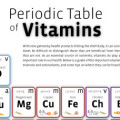Not all supplements are created equal. According to the National Institute of Health’s Office of Dietary Supplements, bioavailability refers to the amount of (the nutrient) in food, medications, and supplements that is absorbed in the intestines and ultimately available for biological activity in your cells and tissues. Bioavailability is the degree to which a nutrient is available to the body for use and measures the rate that a supplement is absorbed within the body after it has been administered. Just because you take a certain dose of a product, doesn’t always mean that is exactly what your body will receive. Everything depends on how much of the dose is dissolved in the gastrointestinal tract.
The bioavailability of a nutritional supplement depends on mainly three things:
- How it has been formulated
- The form in which it is administered
- The quality of the supplement itself
There are many other factors that influence the total level of bioavailability, such as:
- Disintegration time
- Dissolution percentage
- Nutrient forms
- Presence of co-factors or inhibitors in the formula • interactions with drugs
- Time of the day taken
- Your body’s nutritional needs
Finding and figuring out how to choose high quality vitamins and supplements can feel like a near impossible task with the huge selection available. Bioavailability should be considered when taking supplements because with a low bioavailability the body may excrete more of the supplement and therefore absorption may not correspond with the amounts listed.
High quality supplements have been formulated by highly qualified scientists to offer much higher levels of bioavailability than cheaper, mass produced vitamin and mineral products. By doing your own research on brands, you will learn which supplements and vitamins offer the highest bioavailability.
by Melissa Sanborn of Nutritional Brands, PureVegan





1 Comment
Chia (324 comments)
June 6, 2013 at 9:30 pmThanks for sharing this info.